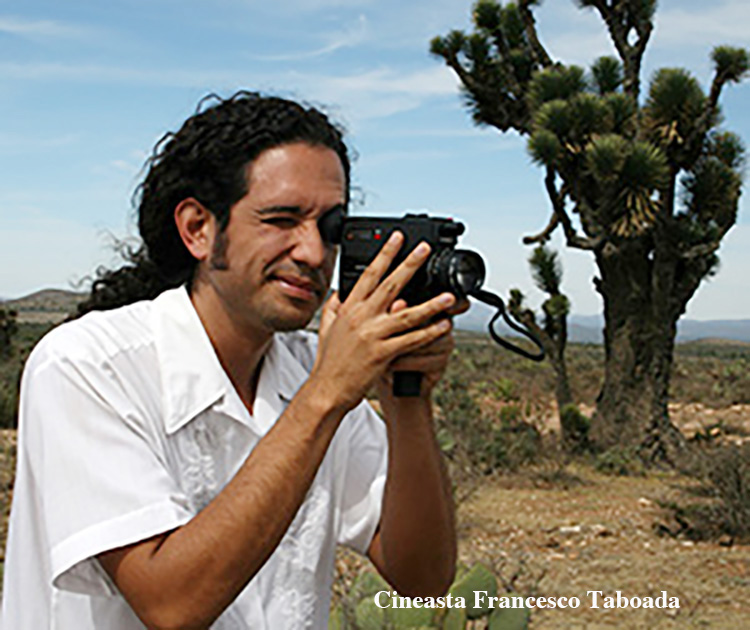NOTE FROM THE EDITOR
Dear readers:
I can’t take my attention away from this latest epidemic bomb that could end up killing many of us in the coming months, such as the coronavirus. And in addition to the covert coverage of the media about the spread of this new disease, whose coverage limits are often limited to the the government press releases, there are independent analyzes outside the box that provide different perspectives to the discourse. So here is an independent investigative journalist, James Corbett, who does his part, as usual, by giving us his perspective on the situation in the following article.
– Marvin Ramírez
by James Corbett
corbettreport.com
Feb. 29, 2020
It’s spreading. It’s mutating. It’s going viral.
Am I talking about coronavirus? No! I’m talking about theories about coronavirus.
It’s a natural virus. / No, it’s a manmade bioweapon!
It’s less deadly than the regular flu. / It’s worse than the Spanish Flu! / It’s flying bat AIDS!!
The numbers are being underreported. / The numbers are being inflated!
It was patented in 2015! / No, it really wasn’t.
It was unleashed by accident. / It was unleashed on purpose. / It doesn’t even exist!
Yes, there are as many theories about coronavirus disease 2019 (Covid-19) as there are people talking about it. The reality is that I don’t know the truth about what this virus really is or where it came from and neither do you.
But there’s something that we do know for sure regardless of where this virus came from or whether it even really exists. The hype and fear and panic and pandemonium surrounding this (supposed) outbreak is going to be far worse than the disease could ever be. Because, as I’ve been screaming about for over a decade now, a bioweapon attack (real or manmade, false flag or otherwise) is the perfect cover for a slew of agenda items on the globalist checklist. And the more the population panics, the more they play into the globalists’ hands.
Here are five items on The Powers That Shouldn’t Be’s wishlist that are being delivered on a silver platter as people scurry around panicking about coronavirus.
1) Unprecedented surveillance and control of population
As Corbett Reporteers will know by now, China is in many ways the model for the technocratic Brave New World of the 21st century. Social credit scores and facial recognition CCTV networks and government-controlled internet are just the most obvious examples of how governments will seek to surveil and control their populations in the future. So it shouldn’t be surprising that China, as the epicenter of this new coronavirus outbreak, is pioneering new and hitherto undreamt of ways to keep their population in line during the crisis.
The first thing to note is the sheer scale of what the Chinese government is attempting here. The quarantine imposed in Wuhan last month, encompassing a city of 11 million people, was already the largest quarantine in human history. But when that quarantine expanded to include the entire province of Hubei—a population of 57 million people—the scope of the lockdown became nearly unimaginable. How can such a quarantine possibly be maintained?
Well, as we’ve all seen, it can be done by good old-fashioned brute force. When in doubt, just weld the sick person’s door shut so they can’t leave their room!
But to really manage millions of people, you need technological help. And so the Chinese government has been deploying every tool in its arsenal to monitor and maintain restrictions on citizens and their movements.
Flying drones to harass anyone walking around without a mask? Check.
A nationwide video surveillance system called—you can’t make this up—Skynet to help spot quarantine evaders? Check.
A color-coded rating on a smartphone payment app to identify people as low or high-risk for carrying the virus based on their payment and travel history? Check.
If you can think of a creepy and invasive way of tracking and controlling the population, you can bet your bottom dollar that the Chinese government has already thought of it (and is likely already using it).
But here’s the real question: When this is all over, do you think the government will simply shelve these technologies and systems? Or do you think that once this level of control becomes normalized that the authoritarians in the Chinese Communist Party will continue using it?
And here’s the even realer question: Do you think there’s a government anywhere around the world that wouldn’t use this technology on its own population if given a convenient excuse (like, say, a freakout over a novel coronavirus)?
The answers to these questions are obvious, but just look at the prisoner conditioning that has been taking place at the airports for the past two decades. Even people like myself who grew up pre-9/11 can scarcely believe there was a time where you could hop on a plane with little more than a step through a metal detector. What? You want to bring a water bottle through security!
? What are you, crazy? In just two decades, the entire experience of air travel has been utterly transformed, and no declaration of victory in the so-called “War on Terror” will ever bring back the old security screening practices. For the average American, the TSA if just a fact of life now.
And for those who live for long enough in a quarantine crackdown, complete government surveillance of every citizens movements, purchases and interactions will just be a fact of life. These tools of control are here to stay, and the longer these quarantines last and the greater the areas effected, the further it will go in conditioning the public to accept it.
2) A blank check for Big Pharma and the WHO
When a detective is looking to solve a crime, it’s important to ask cui bono. Although it may be circumstantial, establishing who benefits from a crime at least points you to some suspects.
In this case, though, the question of who benefits has a simple answer: WHO benefits, of course. The World Health Organization, that is. As the United Nations body tasked with directing international health and leading the response to global health concerns, the WHO always grows in power in the wake of every crisis.
During the swine flu non-crisis and the ebola non-crisis and the zika non-crisis the WHO was led by Director-General Margaret Chan. It was under Chan’s watch, remember, that the WHO declared the 2009 swine flu outbreak a “global pandemic,” a move that automatically triggered billions of dollars of vaccine purchases by various governments. This was a blatant cash grab, of course, and even the Council of Europe was compelled to note that the members of the WHO council that made the pandemic declaration were also sitting on the boards of the vaccine manufacturers who stood to benefit from that decision.
With the Covid-19 outbreak, too, the WHO is playing a game with the pandemic declaration, only this time its motivation is precisely the opposite. In 2017, the World Bank issued a $425 billion bond in support of its Pandemic Emergency Financing Facility. Investors in that bond issue will lose everything if a global pandemic is declared before July . . . a key reason, some suggest, why the WHO is refusing to call coronavirus a pandemic despite it quite clearly meeting the criteria.
___________
So who is heading the WHO this time around? Well, it’s not Margaret Chan anymore. She stepped down in 2017 and was replaced by Tedros Adhanom Ghebreyesus, an Ethiopian politician and academic who, William Engdahl notes, is the first WHO director-general who isn’t even a medical doctor. Instead, after earning his degree in biology at the University of Asmara in Eritrea and serving in a junior position at the Ministry of Health under the Marxist dictatorship of Mengistu, he:
“[. . .] then went on to become Minister of Health from 2005 to 2012 under Prime Minister Meles Zenawi. There he met former President Bill Clinton and began a close collaboration with Clinton and the Clinton Foundation and its Clinton HIV/AIDS Initiative (CHAI). He also developed a close relation with the Bill and Melinda Gates Foundation. As health minister, Tedros would also chair the Global Fund to Fight AIDS, Tuberculosis and Malaria that was co-founded by the Gates Foundation. The Global Fund has been riddled with fraud and corruption scandals.”
Oh, you mean the Gates Foundation and their GAVI Alliance for vaccination that are the WHO’s biggest donors? The Gates Foundation that helped host the Event 201 “high-level pandemic exercise” in New York last October that war gamed out the entire coronavirus scenario we’re currently living through? Right.
And how are WHO going to save the day? With Big Pharma drugs, naturally! Governments are already lining up to pledge tens of millions of dollars to fund the effort to develop a coronavirus vaccine. And that’s just the funding to develop the vaccine. There are many more billions waiting for the big pharma manufacturers who can deliver the first vaccine to market.
Yes, coronavirus is going to be a big payday for some rich and well-connected people in the international medical mafia. But don’t worry, the politicians are going to get in on the fun, too . . .
3) An excuse to implement medical martial law
A decade ago, in the midst of the swine flu hype, I released an episode of The Corbett Report podcast on medical martial law. In that episode I laid out the various ways that governments around the world (including, of course, the US government) have been quietly passing legislation that would enable them to implement martial law in the event of a global pandemic. This would allow them to quarantine and incarcerate citizens suspected of infection, and would allow the government to administer whatever medications (including vaccinations) it deemed necessary to stop the spread of the infection.
In the US specifically, this legislation took the form of The Model State Emergency Health Power Act, a piece of legislation that was drafted by the Center for Disease Creation (CDC). The act grants government the power to quarantine, force vaccinate, and mobilize the military to help implement emergency procedures as deemed necessary to contain the outbreak. It is designed to be forwarded in each state legislature so that the states could harmonize their emergency pandemic plans, essentially creating a federal system enabling medical martial law. As the ACLU notes:
“The Act lets a governor declare a state of emergency unilaterally and without judicial oversight, fails to provide modern due process procedures for quarantine and other emergency powers, it lacks adequate compensation for seizure of assets, and contains no checks on the power to order forced treatment and vaccination.”
Regardless, at last count the act has been the basis for 133 pieces of legislation in 33 different states.
And, sure enough, the citizens of the developed, Western world who thought that martial law was only for banana republics and exotic Eastern countries are about to get a taste of this bitter medicine on the back of the coronavirus hype.
Australia just activated its emergency pandemic plan despite not having a reported case of human-to-human transmission of Covid-19. The plan grants the government the power to cancel public events, force people to work from home, close childcare centers and otherwise impose mandates and restrictions on the daily lives of its citizens as it sees fit.
Not to be outdone, the Swiss Federal Council has just declared a “special situation” which allows the council to issue emergency police ordinances “without a basis in federal law.” Some of the powers explicitly assumed by the council include the power to mandate vaccinations, order quarantines and ban events or close institutions.
Now Britain, the US, and other countries are dusting off their own emergency plans and preparing to get in on the martial law bonanza.
Of course, this is not only the perfectly predictable response to the current outbreak hype, it was the predicted response. That’s right, as noted above, the high-level exercise dubbed Event 201 that was held last October and which simulated a global coronavirus pandemic featured extensive discussion about the need to implement medical martial law in order to bring the virus in check.
Thus we saw Stephen Redd of the CDC opining during the exercise that “governments need to be willing to do things that are out of their historical perspective [sic] . . . It’s really a war footing that we need to be on.”
Likewise, Brad Connett of medical supply manufacturer Henry Schein Inc declared that “it can happen quickly. A martial [law]-type plan–they may not say that, exactly–but a martial [law]-type plan can go into effect and stimulate change very quickly.”
It certainly can. And what room do you believe the governments that implement martial law are going to leave for dissent on the issue? Why, none, of course. But how are they going to stop the spread of information in this age of 24/7 always-connected social media?
Funny you should ask, because that leads us to our next New World Order agenda item.
4) An excuse to crack down on the internet
In New World Next Year 2020—the annual year-end New World Next Week wrap up episode—I predicted that 2020 was going to be The End of the Internet As We’ve Known It! At the time I formulated that prediction, the 2020 (s)election circus and the inevitable wave of censorship that it would bring about weighed heavily on my mind. As it is, it’s quite possible that coronavirus will be the convenient excuse for governments to flex their internet censorship muscles.
Zero Hedge has already had its Twitter account suspended for posting the details of a particular Chinese scientist working in the Wuhan bio lab that some suspect was the origin of the outbreak. This was done in the name of Twitter’s policy about “abuse and harassment,” but given that the website did nothing more than post the already publicly available contact information for the scientist, it seems more likely that this is part of a campaign to control the narrative on coronavirus from the get go.
As I write this editorial, the front page of Google News (which I strongly advise against using as a source of information, for the record) is filled with “Fact Checks” about various coronavirus theories that are floating around the internet.
Given the current state of online censorship, can there be any doubt that governments around the world will jump at the excuse to scrub dissenting voices from the internet? As alternative information about the virus, its origins, and the vaccines that are intended to “cure it” flood the net, a propaganda campaign unlike any we have seen before will be waged to portray the purveyors of this information as a threat to public order. They will be purged from the internet accordingly, with (no doubt) the approval of a large proportion of the population. And with that precedent set, it will only be a matter of time before any information that challenges the ruling power is deemed a “threat to public order” and wiped from the internet.
Lest there be any doubt that the online purge is an aspect of the pandemic scenario that is particularly important to TPTSB, it should be noted that Event 201 dwelled extensively on how to “stop the spread of misinformation.” Their answer: Internet shutdowns and censorship, of course!
5) Precipitating economic crisis
Given that I make my living online, the prospect of internet shutdowns and censorship crackdowns are worrying to me. But before you become too distraught over the plight of the poor podcaster, let’s put this crisis into perspective: Assuming that the virus does go pandemic, it is quite likely that this will be the largest economic disruption of our lifetime.
This is the point where I would put forward some facts to back up such a bold statement, but given that we just saw the worst week in the markets since the financial crisis, including the worst two day point drop in Dow Jones history, I doubt that it’s really necessary to elaborate.
As mass quarantines expand, public events are canceled, businesses are shuttered, and economic activity generally grinds to a halt, it doesn’t take a genius to deduce that we are in for a global economic crisis of nearly unthinkable proportions. But the real disruptions are going to start long before we get to that point.
Given that the mass quarantines have started in China, a.k.a. the most important link in the global just-in-time supply chain, we are going to see significant difficulties for many manufacturers producing basic consumer goods in the very near future. Smartphones. Cars. Even, in a perverse bit of irony, medical supplies. So much of the global economy that depends on Chinese manufacturing is already experiencing shutdowns and shortages. And this is only the razor thin edge of what promises to be a gigantic wedge.
Here’s the worst part: These disruptions are already baked into the cake. Even if everyone on the planet was suddenly cured of their disease overnight and all quarantines were lifted, the effects of these last few weeks of lockdowns and closures would still continue to ripple their way through the global economy for months. But as the fear and hype spreads from continent to continent and the mass disruptions expand, these effects will get worse and worse.
I would expand on this point, but I have a feeling this is going to become a dominant and recurring topic of review in these editorials in the future. Let me just say this for now: Regardless of whether coronavirus is natural or manmade or even whether it exists at all, the economic effects of this event are going to be very real and very profound. Given that I write for the International Forecaster and have been documenting the Ponzi scheme that is the modern global economy for over a decade now, I’m often asked when the scam will collapse and the long-predicted global financial crisis will hit. Well, it’s very possible that the crisis has now officially hit and the decades of pie-in-the-sky negative-interest-rate helicopter-funny-money insanity that has papered over our grim economic reality is about to come crashing down all at once.
Conclusion: Coronavirus panic is a giant boost for the globalist agenda
I recently heard a suggestion that if this does eventuate into a global pandemic then it will set the globalist agenda back by decades. After all, an event like this will surely teach us all a hard lesson in national self-sufficiency and the inherent danger of an overextended, just-in-time global supply chain, right?
Of course not. No, that’s the conclusion that a rational person thinking about the crisis in a rational way would come to. So of course the globalists are going to force feed us the exact opposite idea: That a crisis like this will demonstrate how we need even more global integration amongst all levels of public and private society.
Don’t believe me? Just read the press release that Johns Hopkins and the Event 201 participants put out last month just before “Wuhan” and “coronavirus” became topics of daily conversation:
“The next severe pandemic will not only cause great illness and loss of life but could also trigger major cascading economic and societal consequences that could contribute greatly to global impact and suffering. Efforts to prevent such consequences or respond to them as they unfold will require unprecedented levels of collaboration between governments, international organizations, and the private sector.”
Oh, that’s right. This is another chance to “fail forward.” After all, as that great globalist soothsayer Rahm Emanuel told us during the last financial catastrophe, the global elitists’ mantra is to “never let a good crisis go to waste.” Do you really think this “crisis” (whether real or imaginary) would be any exception?













